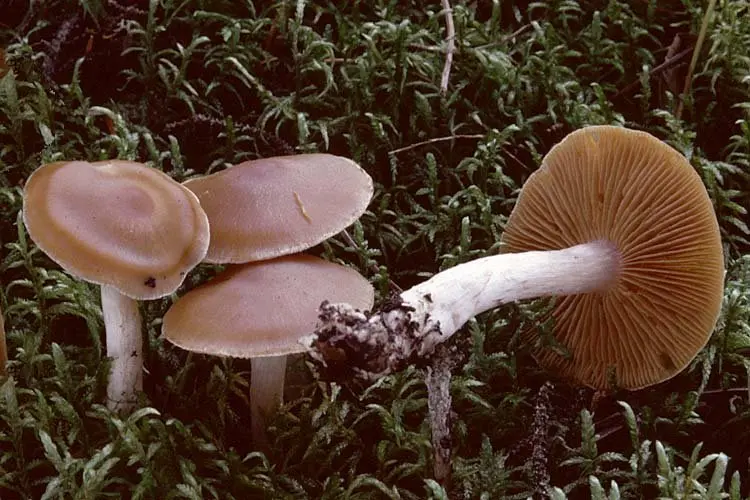Orange cobweb (Cortinarius armeniacus)
- Division: Basidiomycota (Basidiomycetes)
- Subdivision: Agaricomycotina (Agaricomycetes)
- Class: Agaricomycetes (Agaricomycetes)
- Subclass: Agaricomycetidae (Agaricomycetes)
- Order: Agaricales (Agaric or Lamellar)
- Family: Cortinariaceae (Spiderwebs)
- Genus: Cortinarius (Spiderweb)
- Type: Cortinarius armeniacus (Orange cobweb)
- Cobweb apricot yellow

Cobweb orange (lat. Cortinarius armeniacus) is a species of fungi that is part of the genus Cobweb (Cortinarius) of the Cobweb family (Cortinariaceae).
Description:
Cap 3-8 cm in diameter, first convex, then convex-prostrate with a lowered wavy edge, prostrate with a wide low tubercle, with an uneven surface, hygrophanous, weakly sticky, bright brown-yellow in wet weather, orange-brown with a light edge from silky -white fibers bedspreads, dry – ocher-yellow, orange-ocher.
Records: frequent, wide, adnate with a tooth, first yellow-brown, then brownish, rusty-brown.
Spore powder brown.
Leg 6-10 cm long and 1-1,5 cm in diameter, cylindrical, expanded towards the base, with a weakly expressed nodule, dense, silky, white, with faintly noticeable silky-white belts.
The flesh is thick, dense, whitish or yellowish, without much odor.
Spread:
The orange cobweb lives from mid-August to the end of September in coniferous forests (pine and spruce), rarely
Evaluation:
The orange cobweb is considered a conditionally edible mushroom, it is used fresh (boiling for about 15-20 minutes).









